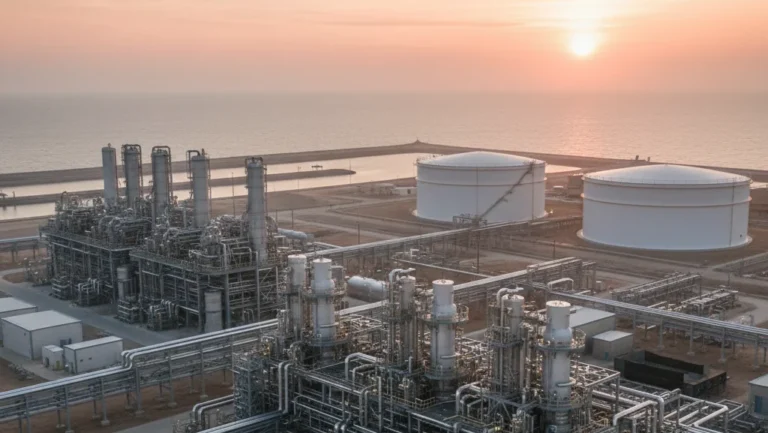
The global ADC contract manufacturing market is anticipated to experience significant growth from USD 1.79 billion in 2024 to USD 6.88 billion by 2035, with a compound annual growth rate (CAGR) of 13%. This growth is driven primarily by the increasing demand for antibody-drug conjugates (ADCs), which are revolutionizing cancer treatment. Over 20 ADC therapeutic programs have already been approved by regulatory bodies, and more than 260 therapies targeting various cancers, including both solid tumors and hematological cancers, are currently in clinical trials.
Key Market Drivers and Trends
The expansion of the ADC contract manufacturing market is being propelled by the growing preference for innovative cancer therapies, such as ADCs. These drugs are increasingly seen as effective treatment options, particularly for hard-to-treat cancers, due to their ability to deliver targeted therapies directly to cancer cells, minimizing damage to surrounding healthy tissues. However, the complexity of ADC manufacturing, including challenges such as drug/linker side reactions, exposure to toxicity, contamination risks, and the need for high capital investments, has led many drug developers to outsource manufacturing to specialized contract manufacturers.
Outsourcing ADC manufacturing not only reduces operational costs for pharmaceutical companies but also allows them to leverage the expertise and specialized facilities of contract manufacturers. As the demand for ADCs continues to grow, driven by both the approval of new ADC therapies and the robust pipeline of drugs in development, the ADC contract manufacturing market is expected to expand further in the coming years.
Market Insights and Opportunities
The ADC contract manufacturing market is experiencing rapid growth, and key insights from recent reports indicate that:
- Over 30 manufacturers worldwide claim to possess the necessary capabilities for ADC manufacturing and conjugation services.
- 50% of large contract manufacturers provide a broad range of services across all operational scales, with over 45% of ADC conjugation facilities located in North America.
- The demand for ADC therapeutics is driven mainly by treatments targeting solid tumors, with North America expected to generate 45% of the demand.
- 75% of manufacturing agreements in the ADC sector focus on both clinical and commercial manufacturing.
- The market is heavily concentrated in large manufacturers, who hold over 90% of the installed contract manufacturing capacity.
- More than 70% of ADC manufacturing is currently outsourced, leading to an expected annual growth rate of over 13.8% over the next decade.
As the ADC pipeline continues to expand, manufacturers in the sector are striving to build a competitive edge by upgrading their existing capabilities and offering comprehensive, integrated service portfolios. This trend has given rise to a demand for one-stop shops, where contract manufacturers offer full-scale services, from early-stage development to commercial-scale production.
Market Segmentation
The ADC contract manufacturing market is segmented based on various factors, including the stage of development, process component, target indication, antibody generation, antibody origin, antibody isotype, type of payload, and type of linker. Here are some key segments:
- Stage of Development: The commercial scale dominates the market, as the majority of ADCs in production are already approved therapies. However, the pipeline for phase I, II, and III trials remains robust, suggesting continued demand for contract manufacturing at all stages of development.
- Component Segmentation: The largest share of the market is held by the antibody segment, with significant contributions from HPAPI/cytotoxic payloads, conjugation/linkers, and fill/finish services. Antibodies play a critical role in ADCs, as they enable the targeted delivery of cytotoxic agents to cancer cells.
- Target Indication: Solid tumors account for the largest portion of the market due to the high demand for ADC treatments in oncology. Hematological tumors also present a growing opportunity, though the solid tumors segment is expected to dominate.
- Antibody Generation: The third-generation antibodies segment is the largest and fastest-growing, owing to the success of third-generation ADCs in clinical applications. These antibodies offer improved specificity and effectiveness compared to earlier generations.
- Antibody Origin: Chimeric origin antibodies are the fastest-growing segment, while humanized antibodies dominate the market due to their ability to minimize immune responses.
- Payloads: Among the cytotoxic payloads, camptothecin is expected to remain the dominant segment, though other payloads, such as maytansinoid, are also growing at a fast pace.
- Linkers: The maleimide linker dominates the market, owing to its widespread use in ADC manufacturing for its stability and effectiveness in delivering payloads.
Regional Outlook
The North American market is the largest and will continue to lead in demand for ADC contract manufacturing services. However, Europe is expected to experience higher growth rates in the coming years, driven by increased adoption of ADC therapies and advancements in manufacturing technologies.
Key Players
Leading players in the ADC contract manufacturing market include:
- AbbVie Contract Manufacturing
- Abzena
- CARBOGEN AMCIS
- Catalent Pharma Solutions
- Cerbios-Pharma
- Formosa Laboratories
- Lonza
- WuXi Biologics
These companies are heavily investing in expanding their capabilities and service offerings, aiming to capitalize on the growing demand for ADC manufacturing.
The ADC contract manufacturing market is poised for significant growth, fueled by the increasing demand for targeted cancer therapies. As more drug developers turn to outsourcing to overcome the challenges of ADC manufacturing, the market is set to expand rapidly, offering numerous opportunities for manufacturers and stakeholders to capitalize on the evolving landscape. With a robust pipeline of ADC therapies in development, the future of the ADC contract manufacturing market looks promising, especially for key segments such as antibodies, payloads, and linkers.




